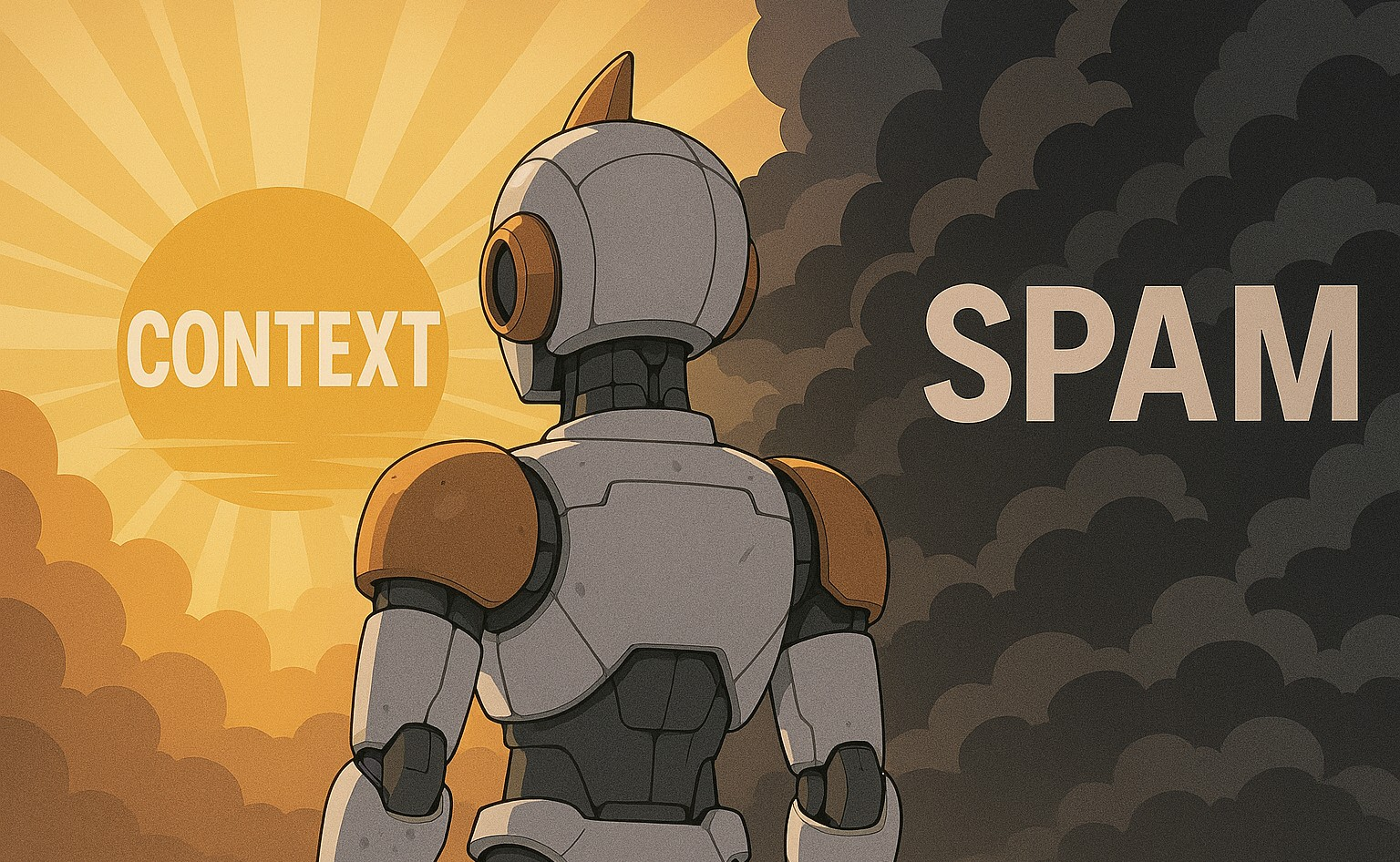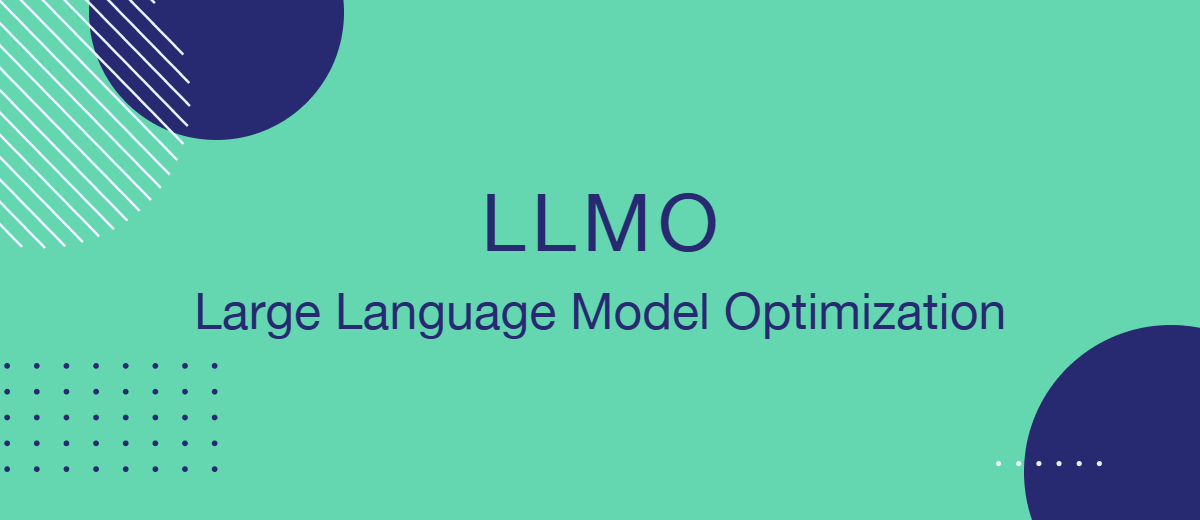Today, promoting brands and products online requires not only creating high-quality content but also making it understandable for language models. This is the basis for the LLMO (Large Language Model Optimization) concept, which is set to gain popularity in 2025. In this article, we'll explain what this trend is, its main principles, and its limitations. You'll also learn about the future prospects for LLMO and its impact on marketing and SEO.
What is Large Language Model Optimization (LLMO)
LLMO is a new approach to digital content optimization that helps adapt materials for artificial intelligence (AI) algorithms. Using this approach, marketers and webmasters make their website content more understandable and easily interpretable by virtual assistants, chatbots, and different AI-enabled systems. For instance, ChatGPT, Google Gemini, and Perplexity.
The general principles of LLMO implementation are largely similar to traditional search engine optimization (SEO). However, its practical methods differ, as artificial intelligence algorithms operate differently than search robots. Therefore, businesses must find new approaches to optimizing content for AI.
According to several studies, each year more and more users are sending queries to ChatGPT and other similar systems rather than traditional search engines. Consequently, content optimization for AI is becoming increasingly important for the successful promotion of brands and products in the digital space. It allows companies to more effectively deliver their content to a growing audience segment that actively uses AI services to search for information online.
Core Principles of Structuring Content for AI Understanding

When it comes to improving AI's understanding of content, it's important to structure texts so they're as easily understood by language models as possible. To achieve this, consider a number of text structuring principles recommended by experts in artificial intelligence and content marketing.
Write Accessible and Informative
Large language models process text better in short paragraphs consisting of simple, short sentences. It's advisable to alternate paragraphs with bulleted and numbered lists and to include subheadings more frequently.
Consider Semantic Relevance
To effectively perform ChatGPT content optimization, using keywords alone is not enough. Modern AI algorithms prioritize content that aligns with the overall meaning and intent behind user queries. They achieve this by analyzing context, related concepts, and semantic connections within the text.
To adhere to this principle, publish more additional content on your website on topics related to your business and the most relevant subtopics. This will help algorithms more accurately determine the value of your resource and more often rank it in relevant search results.
Include Natural Language Questions
Users submit queries to AI systems as complete sentences, not individual keywords. Therefore, you should also include such questions in the titles and subtitles of your articles, answering them informatively in your text.
The question-and-answer format is the most accessible and understandable for large language models. It's how they interact with their users. Consequently, by adapting your content to your audience's needs, you'll increase its relevance to AI.
Write a Short Summary
At the beginning of an article, it's recommended to include a list of key points that capture the essence of the material. This summary will help readers and artificial intelligence algorithms quickly grasp the content and assess its relevance to their search queries.


Use Schema Markup
Schema.org semantic markup initially helped search engines find the information they needed on websites more easily and quickly. Today, it is additionally in demand as a way to format structured data for AI algorithms.
Microdata can be used to mark up not only articles and posts but also other web content formats: products, reviews, frequently asked questions (FAQs), company descriptions, and so on. To check the accuracy of your markup, use Google's Schema Markup Validator.
Common Challenges in Preparing Content for LLMs
When using ChatGPT or Google Gemini content optimization, specialists often encounter limitations that hinder the adaptation of materials to language model standards. Understanding these challenges and skillfully overcoming them allows authors to create texts that are better understood by AI systems. They are more likely to appear in relevant search results and provide a competitive advantage online.
Outdated Content
LLMs primarily search the internet for the most current and relevant information. Outdated materials are given low priority. To attract the attention of language models, content creators should publish new blog articles and social media posts on popular topics as frequently as possible.
Whenever possible, highlight the relevance of the material in the title or introduction—for example, by stating the year. It's also helpful to regularly audit your content. If necessary, add new information: statistics, examples, trends, and so on. After updating, remember to change the publication date.
Keyword Stuffing
Keyword stuffing not only negatively impacts text readability but also degrades its performance by AI algorithms by at least 10%. Large language models assess content relevance not by the frequency of individual words, but by its semantics and context.
Experts recommend avoiding keyword stuffing. Instead, they recommend using more complementary and related phrases, as well as synonyms.

Overloaded Content
Overloading texts with overly complex or redundant information is one of the most common mistakes in content optimization for AI. LLMs respond best to clear and concise information, without complex linguistic structures.
When preparing content, it's recommended not to overload it with excessive detail and avoid unnecessary elaborations. AI-friendly content structuring suggests using short paragraphs, with 3–4 lines being sufficient. It also recommends placing subheadings and lists where they help convey the information more clearly.
Lack of Micro-Markup
As mentioned in the previous section, Schema.org microdata makes web page information clearer and more accessible to search engines and AI algorithms. Neglecting this tool will negatively impact the search engine and LLM user experience. This will ultimately reduce website traffic and other marketing/SEO metrics.
Negative consequences can be avoided by regularly checking your website with appropriate services and adding microdata to new articles. This will help AI systems quickly find and correctly interpret key information on your website's pages.
The Future of Content Creation with LLMO
According to experts, LLMO isn't just another internet marketing trend but a new standard for web content optimization and promotion. It transforms the entire lifecycle of modern content, including its preparation, delivery, and audience consumption.
The confluence of language models and search engines has transformed traditional SEO, gradually being replaced by GEO (Generative Engine Optimization). Content creators, marketers, and webmasters should begin mastering the basics of digital content for language models now to keep up with the rapidly evolving AI industry.
The active implementation of LLMO principles highlights several key trends that will shape the development of digital marketing in the near future. These include:
- Hyper-personalization of content. As language models evolve, the accuracy of AI-powered information searches is steadily increasing. Over time, users will begin to receive even more personalized content based on their preferences and search history.
- Dynamic content generation. AI systems generating content in real time will automatically modify website content based on user search and browsing history, geolocation, and other parameters.
- Integrating LLM with BI platforms. Integrating language models with analytics systems will allow for better tailoring of content to the needs and preferences of a specific brand's audience. This will also enable more effective KPI tracking.
Final Thoughts
Optimizing web content for artificial intelligence algorithms is one of the most important SEO and digital marketing trends in 2025. By applying LLM content best practices, you'll improve how AI systems perceive your content. This will allow you to deliver your materials to a rapidly growing audience more quickly and efficiently.
Adapting your content to LLMO standards can not only increase the number of views of your articles and improve website traffic. Following these principles will make your content more engaging and human-like, which will strengthen the trust and loyalty of your target audience.
Don't waste another minute manually transferring leads from Facebook to other systems. SaveMyLeads is a simple and effective tool that will allow you to automate this process so that you don't have to spend time on the routine. Try SaveMyLeads features, make sure that this tool will relieve your employees and after 5 minutes of settings your business will start working faster.
